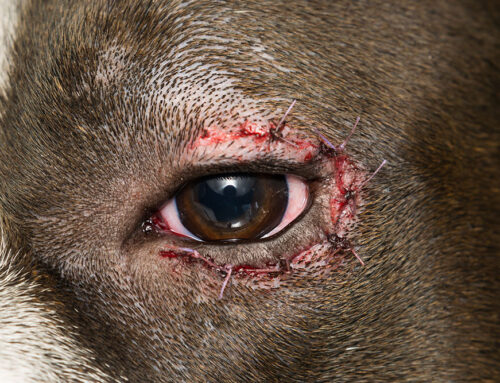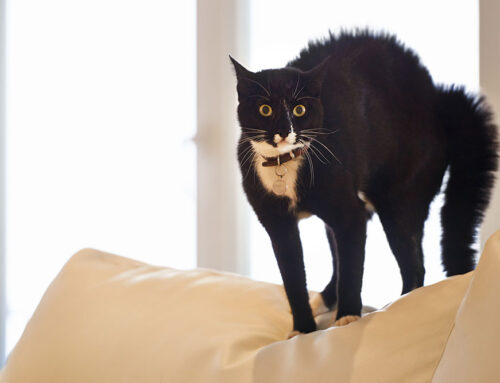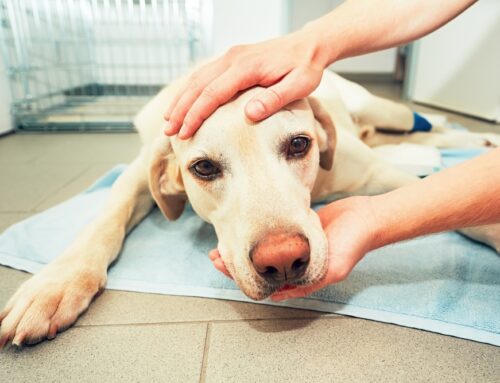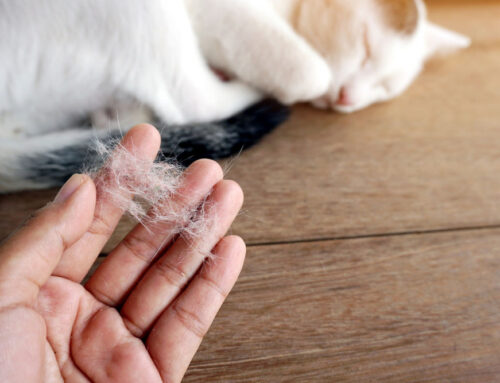Although cats and dogs continue to be the most popular pets by the numbers, some people prefer a companion who is slightly more exotic. Exotic pets, such as lizards, snakes, birds, and rodents, are becoming increasingly more common. Like cats and dogs, exotic pets require proper nutrition, enrichment, an appropriate living environment, and regular veterinary care to thrive. Our Wales Animal Clinic team shares tips to care properly for your exotic pet, so you can provide your unique animal companion with their best life possible.
What is an exotic pet?
Cats and dogs are the most common pets, but you may prefer another type of animal companion. Pet species considered exotic remains debatable, but generally, any animal other than a domestic pet can be considered exotic, including:
- Reptiles
- Amphibians
- Backyard poultry
- Pocket pets (e.g., rodents, ferrets, rabbits)
What does an exotic pet need in their habitat?

An exotic pet’s housing is extremely important to their wellbeing and should mimic their habitat in the wild. Designing their habitat takes research and planning to ensure your pet will be comfortable and safe in the environment. When creating your exotic pet’s ultimate habitat, consider these factors:
- Safety — Your exotic pet’s habitat should be safe and secure, and placed out of other curious household pets’ reach to prevent them from potentially mistaking the exotic for prey. You should keep your exotic pet’s enclosure clean and free of dangerous items that could potentially injure them. You must also ensure the habitat is secure, so that your exotic pet cannot escape.
- Resource access — Your exotic pet’s food and water should be refreshed daily and easily accessible. To help minimize your exotic pet’s illness risk, you should frequently clean their bowls and water bottles.
- Size — Your exotic pet’s enclosure size matters and will vary based on the animal’s species and age. For example, some reptile and parrot species can grow to an astounding size, so know your exotic pet’s requirements, and—to ensure they have adequate space—adjust their habitat’s size as they grow.
- Lighting — Reptiles and amphibians benefit from natural sunlight. In the absence of natural sunlight, you must provide artificial lighting—especially broad-spectrum ultraviolet light for vitamin absorption and metabolism.
- Substrate — Many commercially available pet bedding materials, such as cedar shavings, corn cobs, and walnut shells, are harmful if consumed, while dusty or moldy substrates can cause respiratory and eye problems. Ask our veterinary team which substrate type would be best for your exotic pet species.
- Temperature and humidity — To help ensure your exotic pet remains in optimum health, their habitat must maintain a specific temperature and humidity range. If a habitat’s humidity is too high or too low, your exotic pet can experience serious problems. To heat your exotic pet’s habitat safely, provide appropriately sized heaters that are thermostat-controlled, screened—so your pet can’t get too close and suffer a burn—and positioned toward one end of the enclosure to provide a thermal gradient.
- Enrichment — Design your exotic pet’s enclosure to provide them with appropriate opportunities to exercise their natural behaviors, such as climbing, stalking, sunbathing, swimming, or soaking.
- Maintenance — Check your exotic pet’s habitat regularly, replacing items, such as heaters and lights, as necessary. In addition, to help keep your pet safe and comfortable, regularly clean their enclosure.
What do exotic pets need to stay healthy?
To ensure your exotic pet lives a long and active life, become familiar with their specific needs and personality. When you understand your exotic pet’s normal habits, routines, and behaviors, you can identify when something is off and get them the veterinary care they need to determine a problem’s cause. Factors that impact your exotic pet’s health include:
- Nutrition — Your pet’s diet should be species-appropriate to ensure they get the vitamins and minerals their body needs to function properly. Ask your veterinarian for help in formulating a healthy diet specific to your exotic pet. As you would provide for a dog or a cat, your exotic pet should also receive precisely measured meal portions based on their weight, body condition, and life stage. If you under- or over-feed your exotic pet, they can develop serious health issues.
- Wellness care — Exotic pets should receive annual veterinary care, including a wellness examination, parasite screenings, and blood work. Regular wellness exams enable your veterinarian to help prevent your exotic pet’s illness, detect diseases or other problems early, and ensure your pet receives appropriate treatment quickly—before a disease has progressed. At their wellness exam, your pet’s veterinarian will assess the following:
- Weight
- Body condition
- Eyes, nose, feather/scale/skin condition
- Stool quality
An exotic pet makes an excellent companion if you are willing to put in the time and effort to learn about their needs and provide them with the resources necessary to thrive in their environment. Contact our Wales Animal Clinic team for all your exotic pet’s health care needs, especially their regular wellness examination.







Leave A Comment